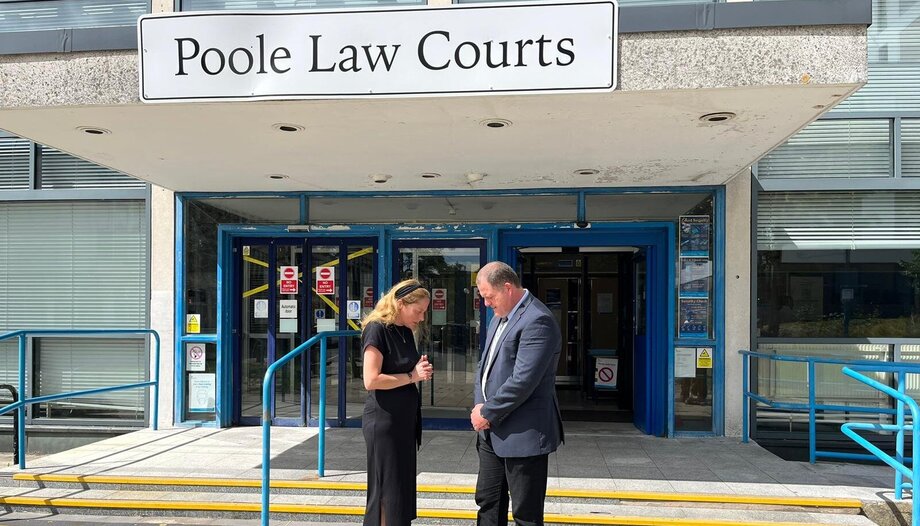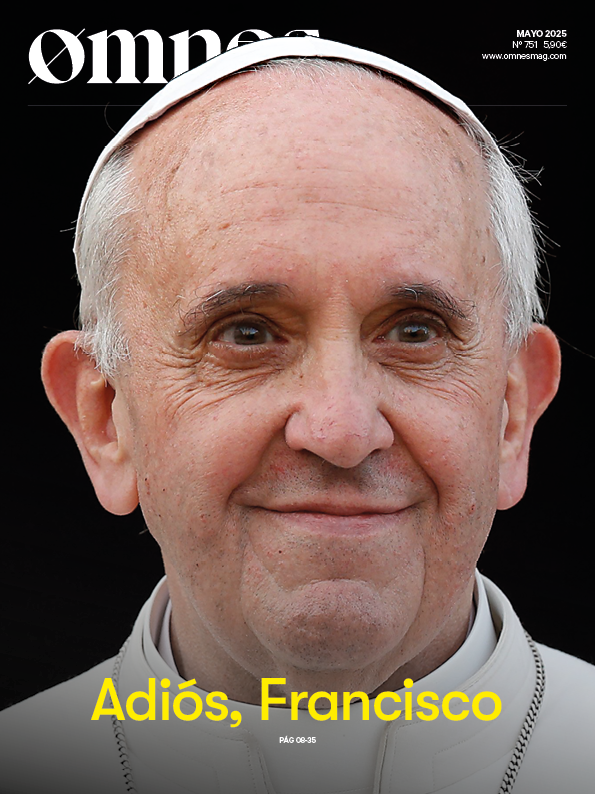Two months after she was arrested in Birmingham for "praying in her mind" in front of an abortion center, which performed some 10,000 abortions a year, Isabel Vaughan-Spruce told the Omnes director in February 2023 that "our basic freedoms are being criminalized." "This should be of concern to everyone, whatever their position on the abortion debate," he added.
Indeed, in September 2024, the new UK Labour government announced that legislation to enact so-called "safe access zones" would or "buffer zones" outside abortion facilities in England and Wales, would come into effect as of October 31.
The legislation, contained in Section 9 of the Public Order Law from 2023criminalizes a range of activities within a 150-meter perimeter of an abortion facility. These criminalized activities potentially include peaceful presence, prayer, thought, consensual communication and offers of practical support to women in vulnerable situations, should any of these be deemed to influence or interfere with access to the clinic, the Bishops' Conference of England and Wales reported.
Archbishop Sherrington: legislation discriminatory
Almost immediately, on September 18, Monsignor John Sherrington, senior bishop for life affairs at the Catholic Bishops' Conference of England and Wales, now appointed Archbishop of Liverpool by Pope Francis, called the legislation "unnecessary and disproportionate," and a "discrimination against people of faith."
These were his words: "As the Conference of Catholic Bishops stated repeatedly during the passage of the Public Order Bill last year, the 'safe access zone' legislation is unnecessary and disproportionate. We condemn all harassment and intimidation against women and maintain that, as accepted in a Home Office review, laws and mechanisms already exist to protect women from such behavior."
Religious freedom, fundamental in a democratic society
"In practice, and despite any other intent, this legislation is discriminatory and disproportionately affects people of faith," added Bishop Sherrington, representing Bishop for Life Issues., y progressively increased the scope of its argumentation.
In his view, "religious freedom is the fundamental freedom of any free and democratic society, essential to the flourishing and realization of the dignity of every human person. Religious freedom includes the right to manifest private beliefs in public through testimonies, prayers and charitable activities, including outside abortion facilities."
"In addition to being unnecessary and disproportionate," he added, "we have deep concerns about the practical effectiveness of this legislation, particularly given the lack of clarity regarding the practice of private prayer and offers of assistance within 'safe access zones.'"
One step back
The British bishop also recalled, among other things, a reflection of Pope Francis on religious freedom. "A healthy pluralism, which truly respects differences and values them as such, does not imply privatizing religions in an attempt to reduce them to the silent obscurity of the individual's conscience or to relegate them to the closed precincts of churches, synagogues or mosques," the Pontiff noted.
"This would, in effect, represent a new form of discrimination and authoritarianism. By legislating and implementing so-called 'safe access zones', the UK government has taken an unnecessary and disproportionate step backwards in protecting religious and civic freedoms in England and Wales", the bishop recalled.
"Unique thinking"
In addition to the clear condemnations of abortionist and antinatalist policies that he has frequently made, Pope Francis denounced single thought and ideological totalitarianism. He did so before the Diplomatic Corps accredited to the Holy See on several occasions.
In January 2023, for example, he denounced the "increasing polarization and attempts in various international forums to impose a unique way of thinkingThis prevents dialogue and marginalizes those who think differently".
In the same speech, he pointed to "an ideological totalitarianism, which promotes intolerance towards those who do not adhere to supposed positions of 'progress'" and which employs "more and more resources to impose, especially in relation to the poorest countries, forms of ideological colonization, creating, moreover, a direct link between the granting of economic aid and the acceptance of such ideologies".
Human rights
In this debate and in others concerning restrictions on fundamental rights, the Catholic Church has been unequivocally in favor of international human rights instruments, from the Universal Declaration The 1948 Convention, which is widely recognized, includes "freedom of thought, conscience and religion" (art. 18), in addition to the "right to life, liberty and security of person" (art. 3).
On the other hand, various experts have recalled the Charter of Fundamental Rights of the European Union (2000), which recognizes "the right to conscientious objection", albeit in accordance with national laws. A legal framework also applicable to the assisted suicide bill, which was given the green light by the British Parliament in November last year, as reported by omesmag.com, for people with less than six months to live. The 'Terminally III Adults (End of Life)'. still requires time for processing, and gave rise to a heated debate in the Palace of Westminster.








